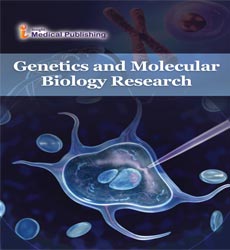Histochemistry & Cell Biology
Abstract
Prostate cancer (PCa) remains the most commonly diagnosed cancer in American men with an estimated incidence of220, 800 new cases and accounting for 27,540 cancer related deaths in 2015. The genetic basis of 50-60% of PCa is attributable to rearrangements in ETS genes (ERG, ETV1, ETV4, and ETV5), BRAF, RAF1 and overexpression of SPINK1. The discovery and validation of reliable diagnostic methods are warranted to detect these molecular rearrangements. ETS gene However, due to the lack of specific antibodies for ETV1, ETV4 and ETV5 genes, in situ detection of these markers is not feasible. We developed a novel RNA in situ hybridization (RNA-ISH) based assay for in situ detection of ETV1, ETV4, and ETV5 in formalin fixed paraffin embedded (FFPE) tissues from prostate needle biopsies, prostatectomy, and metastatic pca specimens using RNA probes developed by advanced cell diagnostics. Further, with combined RNA-ISH and IHC we identified rare subset of prostate cancer with dual ETS gene rearrangements in independent tumor foci. The high specificity and sensitivity of RNA-ISH provides an alternate method for the in situ detection of ETS gene aberrations in prostate cancer.
Open Access Journals
- Aquaculture & Veterinary Science
- Chemistry & Chemical Sciences
- Clinical Sciences
- Engineering
- General Science
- Genetics & Molecular Biology
- Health Care & Nursing
- Immunology & Microbiology
- Materials Science
- Mathematics & Physics
- Medical Sciences
- Neurology & Psychiatry
- Oncology & Cancer Science
- Pharmaceutical Sciences
